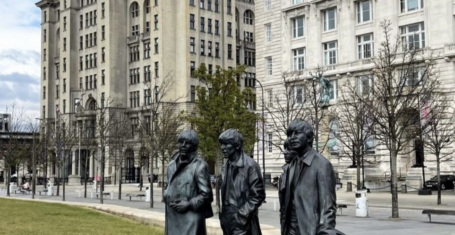
‘A lot can happen in 12 weeks’: How UoL dealt with a student’s mental illness
‘I just wonder how many people weren’t as lucky as me’
Last week, The Tab released the first ever Mental Health Rankings, shining a light on multiple institutions that are failing their students. The University of Liverpool ranked 13th out of the 30 universities listed overall, performing best in the outreach where it placed 9th, but falling to 18th in student satisfaction and down to 19th for the funding per student allocated by the university.
Awareness of student mental health is growing, but is enough being done to tackle this epidemic problem? We spoke to a Liverpool student about his personal experiences with the University support and asked him to suggest how Liverpool can improve to help its student.
While The Tab statistics have concluded that the University of Liverpool’s financial support is average and student satisfaction was disappointing, there is only so much you can learn from numbers. It took a while to find out what I needed to help me but when I did the University counselling services were there for me.
Mental health is a weird thing: those around you can’t really understand it but want to support you, and you have to work out yourself whether you need help. By the end of first year I had become paranoid, obsessed with trying to live up to an unachievable perfection both physically and intellectually, and I constantly tried to please everyone around me. I ended up with many marks on my body and a diagnosis of depression and anxiety from a GP.
I began overthinking significantly and my sleep was disastrous, and eventually my girlfriend persuaded me I needed help. The first thing I did to tackle my mental health was go to the student health service, who diagnosed me with anxiety and depression and offered me anti-depressants or anti-anxiety pills: I’d heard a few off-putting reviews of anti-depressants and opted for the anti-anxiety, so they gave me a prescription of Beta Blockers. This was one of the worst mistakes I could have made.
Beta-Blockers are heart medication, supposed to decrease the activity of the heart by blocking the action of hormones like adrenaline. For me, they led to an even worse anxiety attack. I was in a shop in town and my head started going wild but my body was completely calm. This made me even more anxious. I stopped taking the Beta blockers after less than a week.
I decided the university couldn’t help me, so I started buying Atarax online. This was much more effective than the beta blockers and I started to feel slightly better. However after a very bad night involving a knife and a trip to the hospital, I realised I needed to reassess my options.
I concluded that I had to go to counselling. Drugs didn’t work, ignoring it didn’t work, and the only thing that gave me motivation was other people worrying about me, so I felt I had to do something for them.
I was scared, worried, embarrassed, but the counselling service was a calm, relaxed environment. I can’t explain what I expected but everything from the colour scheme to the way the staff spoke helped me relax. I didn’t feel judged, I didn’t feel like a problem that needed fixing. I had the luck of living locally to Liverpool so I was able to receive support over summer when demand was significantly decreased. They helped me a lot.
The low satisfaction rating for the University of Liverpool won’t be a result of the quality of the counsellors. It will be because of the lack of supply for the demand. My counsellor taught me a bit about psychology to help me understand what was happening in my head, he helped me realise that I didn’t have to be perfect and that mistakes were all a part of life. He recommended techniques to relax in case things went bad again. I felt better, or at least I thought I did. I later fell into a bad patch, which didn’t get as bad as it did in first year but reached the point of isolation and self harm. So I signed up to the counselling service again.
I felt like a failure, going back. I was an embarrassment. Did the university care? No: they treated me as if I was a new face. I had the same counsellor who reassured me that this was a relapse, that this was human, that I was going to be okay.
It’s a shame that these statistics don’t reflect the quality of the staff. Maybe I was just lucky and won a treatment lottery but I don’t think that’s the case. I think that at any university the counsellors will care and do their best to help students. The real problem is that they don’t have the quantity of support needed.
A friend of mine had similar problems but he had to wait 12 weeks for his first session. 12 weeks. A lot can happen in 12 weeks. A lot can change in 12 weeks. University is a huge change for many people full of challenges and pitfalls. That’s why we need more funding for mental health services. While the Vice Chancellor of the University is being paid £339,000 a year, student mental health services are evidently underfunded. I just wonder how many people weren’t as lucky as me.
For more information on the university’s mental health services and general awareness of the issues, head to the conference on the 12th October.
If you have a story you’d like to share with us a, email [email protected]









































